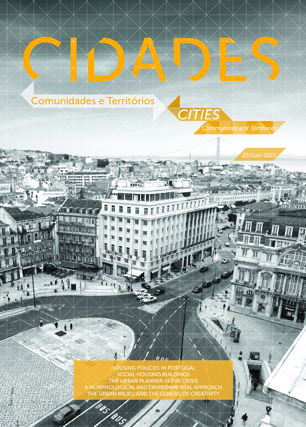Lisbon Territory from a morphological and environmental approach
Lessons for a Sustainable Urban Agenda
Mots-clés :
Lisbon, Territory, Environment, Urban Planning, Water, MorphologyRésumé
This paper introduces the debate of sustainable development from a fresh perspective. Through a comparative analysis provided by a number of case studies within the Lisbon Territory, in Portugal, this paper aims to demonstrate how the impact of subterranean and surface water management has determined specific territorial arrangements, urban morphological parameters and urban design solutions within the territory of Lisbon. It is argued that the acknowledgement of such territorial arrangements should provide important lessons that need to be recuperated by the discipline of urban planning in order to contribute to an effective Sustainable Urban Agenda. The specific goal of this article is to contribute to the building of a methodological framework that informs on how to intervene on the urban periphery, while integrating the city and territory; and also, how to make this integration work effectively for mankind and the environment. The sustainability perception that supports this consideration is built upon a vision that professes a non-pollutant urban system; that should result from the transformation of the current productive system, based on a systematic production of residues, into a new productive relationship with the territory.
Téléchargements
Publié-e
Numéro
Rubrique
Licence
Cidades, Comunidades e Territórios by DINÂMIA'CET-IUL is licensed under a Creative Commons Atribuição-Uso Não-Comercial-Proibição de realização de Obras Derivadas 4.0 Unported License.Permissions beyond the scope of this license may be available at mailto:cidades.dinamiacet@iscte.pt.






